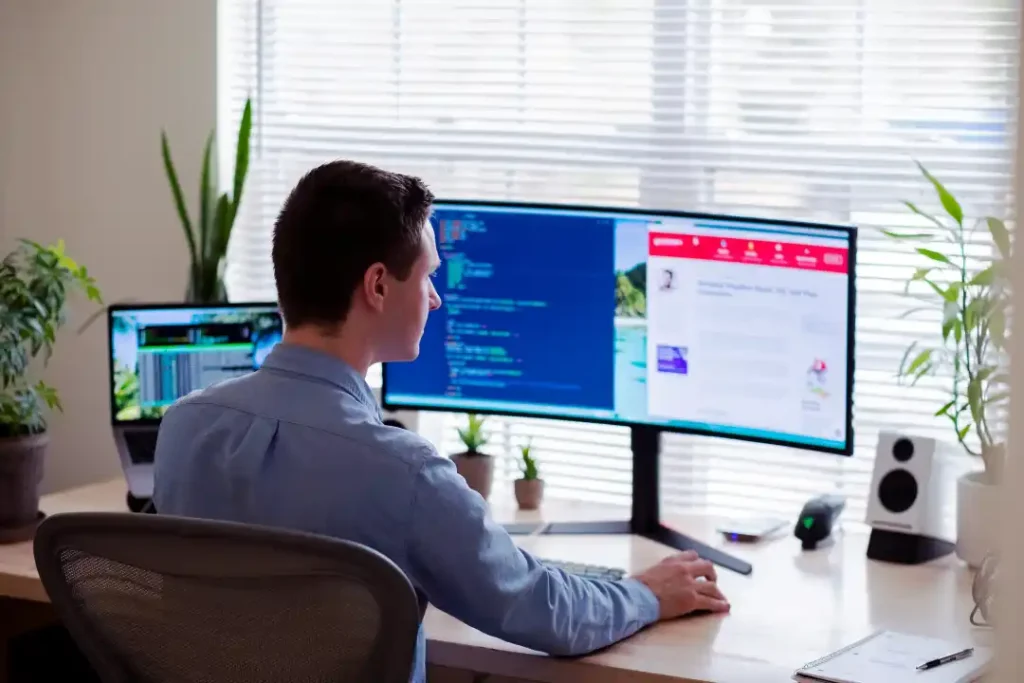Caring for a loved one at home can be a rewarding yet challenging responsibility. In today’s digital age, technology can play a crucial role in making the caregiving journey more manageable and efficient. From organizing medical information to ensuring medication adherence, there are several software programs designed to assist caregivers in providing optimal care. In this blog post, we’ll explore the must-have tech essentials for caregivers, offering a comprehensive guide to software programs that can enhance the home care experience.

Private Duty Home Care
Private duty home care software revolutionizes the caregiving landscape, offering comprehensive solutions to enhance the efficiency and quality of care provided at home. A highly specialized, private duty home care software, streamlines administrative tasks, such as scheduling, billing, and client management, allowing caregivers to focus more on individualized care. With features like electronic visit verification, real-time updates, and caregiver tracking, these software programs ensure transparency and accountability.
The ability to maintain detailed client profiles, track medical records, and manage medication schedules further empowers caregivers to deliver personalized and effective care. This software not only optimizes operations but also promotes a higher standard of care, fostering a more organized and responsive caregiving environment for both providers and recipients.
Electronic Health Records (EHR) Software
Electronic Health Records (EHR) software is a cornerstone in the caregiving journey, offering caregivers a sophisticated tool to manage and organize crucial health records. In the realm of home care, programs such as CareZone and MyChart play a pivotal role by providing a centralized and easily accessible database for storing medical information. These applications empower caregivers to efficiently manage vital aspects of care, including storing essential documents, tracking medication schedules, and recording vital signs.
By doing so, EHR software ensures that healthcare providers have immediate access to critical information, promoting better-informed decision-making and enhancing the overall coordination of care. This technology not only streamlines the caregiving process but also contributes to the seamless exchange of information between caregivers and healthcare professionals, ultimately improving the quality of care provided to individuals at home.
Medication Management Apps
Ensuring medication adherence is a significant responsibility for caregivers. Fortunately, technology offers solutions to help manage medication schedules effectively. Apps like Medisafe and PillPack provide customizable medication reminders, dosage tracking, and even automated prescription refills. These tools not only help caregivers stay organized but also contribute to the overall well-being of their loved ones by minimizing the risk of medication errors.
Telehealth Platforms
Telehealth has become an integral part of the healthcare landscape, especially in the wake of the COVID-19 pandemic. Caregivers can leverage telehealth platforms like Doctor On Demand or Teladoc to schedule virtual appointments with healthcare professionals. This not only saves time and effort but also ensures that individuals receive timely medical attention, even from the comfort of their homes.
Home Monitoring Systems
For caregivers looking to provide round-the-clock care, home monitoring systems can be invaluable. Devices like Nest Cam or Ring Video Doorbell offer real-time video surveillance, allowing caregivers to remotely monitor their loved ones. These systems provide peace of mind and can be particularly helpful in emergencies, allowing caregivers to assess situations and respond promptly.
Calendar and Task Management Apps
Caregiving often involves juggling numerous responsibilities, from medical appointments to daily tasks and chores. Calendar and task management apps such as Google Calendar or Todoist help caregivers stay organized. By setting reminders for appointments, medication schedules, and other essential tasks, caregivers can ensure they never miss a crucial responsibility.
Communication and Coordination Platforms
Effective communication and coordination are essential in caregiving, especially when multiple family members or caregivers are involved. Platforms like CaregiverZone and Lotsa Helping Hands facilitate seamless communication, allowing caregivers to share updates, coordinate schedules, and allocate tasks. These tools enhance collaboration among caregivers, promoting a supportive and well-coordinated caregiving environment.
Health and Wellness Apps
Caregivers often neglect their health and well-being while focusing on their loved ones. Health and wellness apps can help caregivers prioritize self-care. Apps like Headspace and MyFitnessPal offer guided meditation, exercise routines, and nutritional guidance, empowering caregivers to maintain their own physical and mental health.

In the ever-evolving landscape of caregiving, embracing technology can significantly enhance the quality of care provided at home. From managing health records to ensuring medication adherence and fostering effective communication, the software programs mentioned above are essential tech tools for caregivers. As the role of caregivers continues to evolve, staying tech-savvy and incorporating these tools into daily routines can lead to a more streamlined and efficient caregiving experience. Embracing these tech essentials can ultimately empower caregivers to provide the best possible care for their loved ones while maintaining their well-being.

